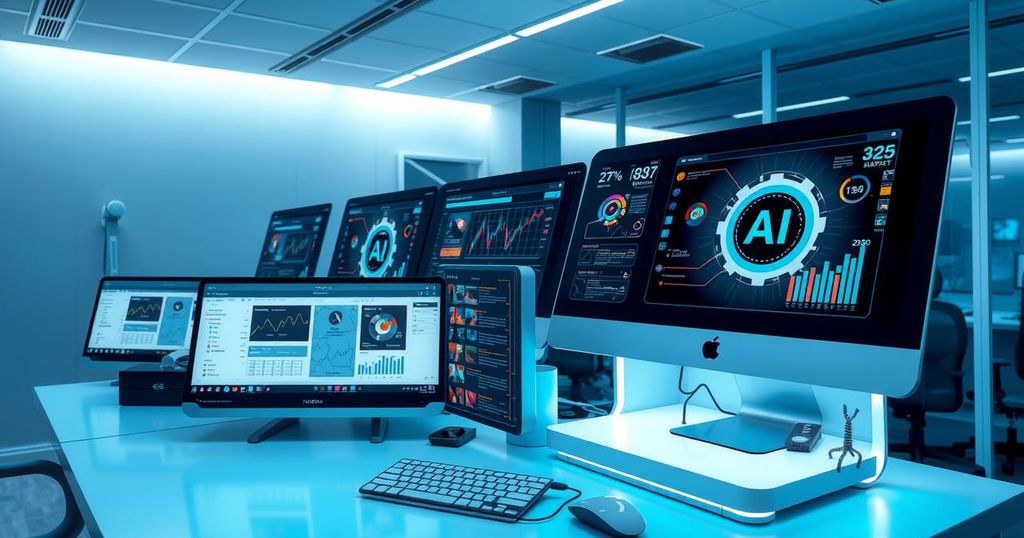Nvidia’s CEO Says AI Could Cause Job Losses Without Innovation
- Nvidia’s CEO warns that AI may cause job losses without innovation.
- Jensen Huang emphasizes the need for fresh ideas in the workforce.
- 41% of executives believe AI will reduce headcount in the next five years.
- Artificial intelligence has the potential to transform industries and create new jobs.
- Huang argues productivity gains from AI should elevate society as a whole.
Nvidia’s CEO Warns of AI-Linked Job Losses Amidst Innovations
The CEO of Nvidia, Jensen Huang, recently discussed the paradoxical relationship between artificial intelligence and job security, casting a spotlight on the potential for job loss in industries lacking innovative ideas. He made his remarks during an interview with CNN’s Fareed Zakaria, referencing concerns expressed by fellow tech leader Dario Amodei of Anthropic. Amodei’s warning, which highlighted the possibility of AI causing significant employment disruptions, suggests that if creativity and new concepts stagnate, then productivity increases could largely translate into job cuts rather than growth.
Huang’s Perspective on Innovation and Employment Relationships
During the discussion, Huang pointed out that innovation will play a critical role in determining whether AI leads to job creation or loss. His perspective is based on the belief that as long as companies continue to innovate, productivity will flourish alongside employment opportunities. However, he cautioned that without fresh ideas, productivity gains could spiral downwards, resulting in fewer roles within the workforce. “The fundamental thing is this, do we have more ideas left in society?” he questioned, emphasizing that the capacity for growth hinges on continuous innovation.
Surveys Indicate AI’s Impact on Workforce Dynamics
As the conversation evolved, Huang noted a growing concern in the business landscape: a significant percentage of executives believe that AI will ultimately reduce workforces. According to a 2024 survey from Adecco Group, about 41% of CEOs anticipate workforce reductions at their companies within the coming five years. Moreover, a prior World Economic Forum survey revealed that a similarly alarming figure—41% of employers—plan to downsize due to AI automation by 2030. But Huang remained optimistic; he argued that while certain jobs might disappear, AI could also lead to new opportunities and industry transformations, thus elevating societal productivity.
In conclusion, Jensen Huang’s insights highlight a critical intersection between artificial intelligence and the future of employment. His comments point to the necessity of innovation to prevent job losses resulting from AI advancements. As AI technologies continue to reshape industries, questions surrounding job security and workforce evolution remain pertinent.




